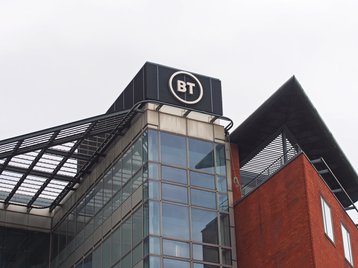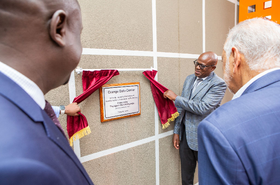The Communication Workers Union (CWU) and BT have reached an agreement over a pay dispute that has rocked the telco since the summer.
It means that the strikes held by BT workers should be a thing of the past, if workers vote for it, with BT offering an additional £1,500 ($1,800) 'Cost of Living' pay rise in addition to the same amount offered to workers earlier in the year.
This increase reflects a pay rise of just below 10 percent for some BT staff and up to 15 percent for some of the telco's lower-paid workers. These pay rises cover all frontline workers, plus 51 percent of managers in the UK, and Openreach workers.
BT had initially offered a pay rise of £1,500 ($1,800) earlier this year, but it was rejected as the CWU said it didn't take into account inflation. This ultimately led to BT and Openreach workers going on strike as an agreement could not initially be reached.
However, the updated pay offer is still subject to approval, with the CWU to run a consultative ballot with its members over the latest offer, with the CWU recommending that workers vote in favor of the offer.
The ballot is expected to be concluded before Christmas, and in the event of a rejection, "another statutory ballot will be held in order to take further industrial action in the New Year," said the CWU.
In a statement, the CWU general secretary Dave Ward said that the pay increase wouldn't have been possible but for the worker's industrial action.
"Make no mistake, your significant sacrifice in taking strike action, making a stand against BT, and objecting to their original imposed pay rise in April ultimately forced BT back around the negotiating table," said Ward. "Without this, there would be no further pay increase."
BT Group chief executive Philip Jansen says the deal favors some of the company's lower-paid workers.
“This award is based on the principles we have followed throughout this difficult period. It gets help to as many of our colleagues as possible; favors our lower-paid colleagues; and gives people the security of a built-in, pensionable increase to their pay.
“Crucially, it has been worked on in conjunction with the CWU. As I’ve said throughout, whatever our differences, our unions are vital partners. We will now build on this collaboration."
BT and Openreach workers fought hard for the pay rise along with the CWU, following months of strike action. The workers voted in favor of a strike, in what was the first time BT workers had been on a general strike in 35 years since the company became privatized in the 1980s.
For their part, BT said the offer was fair, but the stalemate led to strikes on July 31 and August 1, and then again on August 30 and 31. A further four strikes followed in October, as the pay dispute continued.




